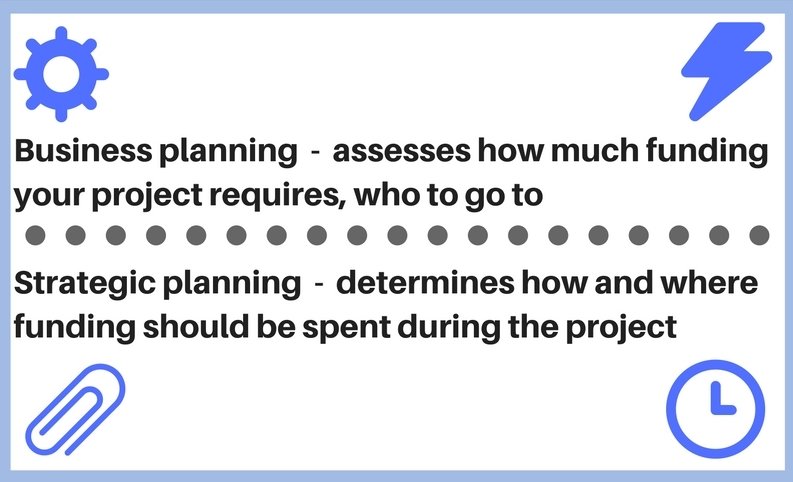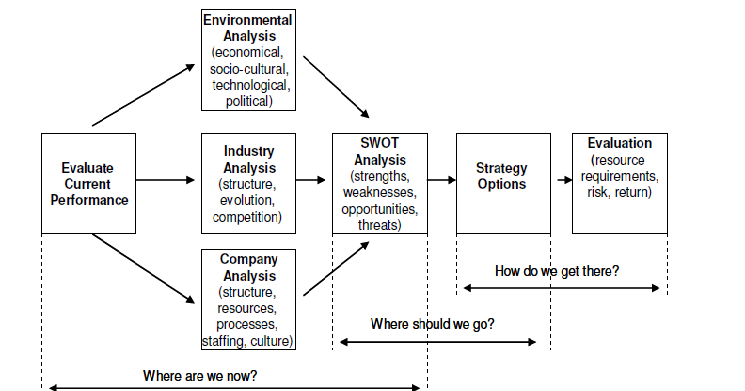We all know the value of project management, but buzzwords like “strategy” and “planning” in and of themselves are as valueless and unexciting as simply saying “profit” or “management”. Without context, these buzzwords hold little or no weight for an experienced project manager. It‘s not the words on their lonesome that means anything, it is what they symbolize when combined together to represent a concept, such as “strategic planning”, which also doesn‘t sound very sexy.
Well, despite the lackluster vocabulary, we will show you the power of strategic planning.
Strategic planning is essentially the grown-up version of business planning. It is thinking even further ahead into the future, scrutinizing with an even sharper eye, and accounting for even further unforeseen organizational challenges and opportunities.
Before we really get into it, let us clear the air on strategic planning regarding project management: it is not a panacea; a cure-all. Strategic Resource Planning foregoes innovative thinking, which for most businesses is another essential for progress and development. Strategic planning is one of the several components of project management software that a high-functioning organization requires to operate at its maximum operating level.
If innovative thinking is the hippies and artists of the organization‘s project management, strategic planning is the architects and engineers. Individually they cannot support an organization alone, but when combined they provide projects with a diverse, robust set of operational capabilities. Today we will go over why strategic planning is vital to get your projects operating at maximum capacity.
Beyond simple business planning
Executives and project managers that have had success in getting an organization up and running may feel tempted to apply the same planning principles to their strategies, but this is a no-no. Business plans are designed to get your organization, new business or new project up and running. For example, a medical device business plan can guide early-stage development, while strategic plans are management tools used to communicate your vision to staff and get projects accomplished with greater efficiency. Here are some of the many key differences between the two:
Business planning – assesses how much funding your project requires, who to go to
Strategic planning – determines how and where funding should be spent during the project

Do not apply your business plan for strategic purposes, as they were not meant to be used as such. Business planning gets you up on your feet, whereas strategic planning is everything from your first step to reaching a full sprint.
Taking project evaluation to the next level

(source: microsoft.com)
The above flow chart is what strategic planning looks like on paper. As you can see, a comprehensive strategic plan covers all aspects of project performance and goals, thus facilitating decision making and enhancing efficiency.
Whether your project is stuck in the mud or sailing the high seas of successful execution, strategic planning has a singular purpose: to move you forward, no matter where you are.
Increased project communication
Part of strategic planning is opening a dialogue that flows from top to bottom, and back up to the top. 67% of organizations‘ HR and IT departments have strategies that are not in line with the overall organizational strategy, due to a lack of communication.
Project managers make their team aware that a strategic plan is going to be taking place for the next project (and of course future projects as well) and that they expect to hear ideas and plans from each department so they can form an overall strategy for the project that each member can adhere to.
85% of executives only spend one hour a month discussing strategy, while the top-performing companies spend four to eight hours a month. Communicating project strategy keeps each member on board, and builds morale when even low-level staff feel that their voice can be heard.
Reducing resource misallocation
In the same breath as to how strategic planning enhances communication among all project staff, strategic planning also project resources to be managed more effectively. Strategic planning goes in-depth in evaluating the given resources a project has available and helps project managers make informed decisions by evaluating, monitoring, and adjusting project resource allocation to where they are needed most to propel the project forward.
Remember how we mentioned that strategic planning is akin to the engineers and architects of your project management? These are the analytical thinkers that pay close attention to the details and make informed decisions based on facts, not conjecture.
Strategic planning identifies what you have to work with, and how to assign human and financial resources to ensure that your project avoids any snares that could cripple your project‘s progress.
Consistent project team engagement
With a strategic planning methodology in place, your staff will be more engaged to contribute all they can throughout the entire duration of the project. Only 23% of companies have a cohesive strategic planning practice in place for their project management, and many still wonder why so many projects run over budget and/or miss deadlines.
As we showed earlier with the flow chart, strategic planning sets up a comprehensive plan for every step of the way during project planning. As an executive or project manager, you are not the one executing your strategy, it is your lower-level managers and staff. You have already demonstrated to them that there is an open dialogue, and communication is encouraged.
Every step of the way, a plan has been put in place. If there is a new idea from any department, they can approach the upper management and suggest ideas. However, once a bridge has been crossed during the project‘s progress, the team already knows what to do next, what to evaluate, and what to aim for and achieve. This keeps them from guessing what they should do next and saves time from them needing to seek out the project manager for instruction.
Combine your artsy, creative hippies with the focused, sober analysts
We have touched on how valuable strategic planning is for project management, and how taking advantage of it harnesses your project‘s future.
Your team should be open-minded, innovative thinkers, always brewing new ideas throughout the project. By using strategic planning you take control of your vision and turn it into real-life results, making full use of your resources and operating your project at maximum capacity.
Photo by Pixabay from Pexels



